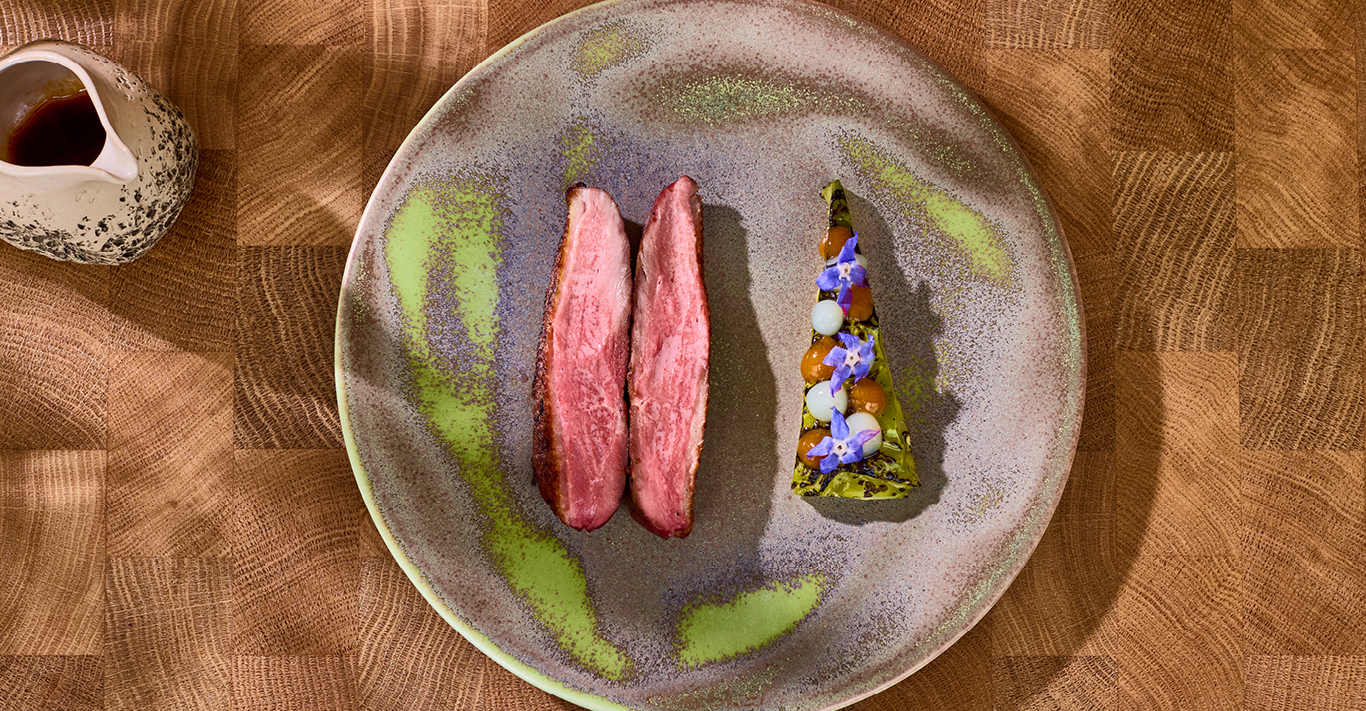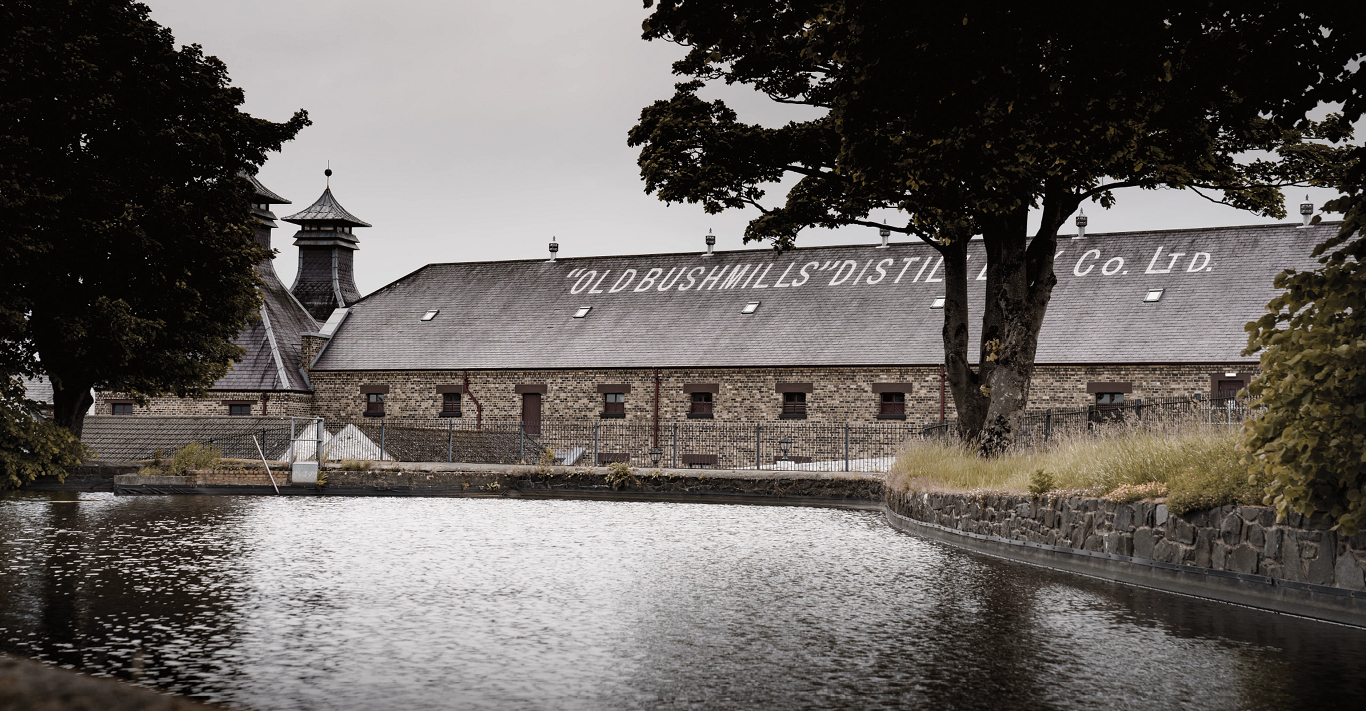WORDS
Sinead Campbell
For the past 18 years, Sally Abé has been something of an enigma in the culinary world. Beginning her career as a trainee chef at the Savoy Grill, Abé went on to cut her teeth at Gordon Ramsay’s Claridge’s restaurant before making a name for herself at Michelin-starred West London hotspots The Ledbury and the Harwood Arms. Along the way, she’s accumulated a growing list of accolades, worked alongside some of the biggest names in the business and has even written a memoir, A Woman’s Place is in the Kitchen, published earlier this year.
Now, she’s head chef at fine-dining restaurant The Pem, which opened at the Conrad London St James hotel in 2021. Fittingly for an establishment named after suffragette Emily Wilding Davison (affectionately known as Pem to her family), Abé’s mission at the restaurant is to redefine the toxic, macho dynamics that dominate professional kitchen environments. Championing a menu of traditional British fare created by a female-led team, Abé is leaving an indelible mark on the restaurant scene in London. Here, she shares some wisdom about the ins and outs of restaurateuring, and her aspirations for the future.
How did you get into cooking and what were your initial professional aspirations?
I kind of got into cooking by accident. I started cooking when I moved to Sheffield from my hometown, Nottingham, when I was 18. I was cooking at home and just really enjoyed it. At the time, I wasn’t enjoying the office job that I was working in, so I thought that I would see if there were any options out there to pursue something to do with food. But I didn’t really know that that would end up meaning I was going to become a chef at that moment – it gradually happened over time.
What changes have you witnessed in the culinary industry over the years?
It’s still a very male-dominated industry. However, I do think there are a lot more female chefs coming up through the ranks and making a splash on the hospitality scene now, which is really nice to see. It’s still only 17 per cent of chefs that are women, and when you get to management, that drops down to less than five per cent, so there’s still a long way to go until we get to that 50/50 balance. But it’s definitely more of a hot topic for people to help bring more women into the industry. I also think the industry is changing in terms of how people are treated in professional kitchens, which in turn means that more women want to come and work in a restaurant.

What are the main challenges you’ve faced and how have you overcome them?
My biggest challenge was confidence, to be honest. I go into quite a lot of detail in my book about the confidence issues that I’ve faced over the years. I think it’s that thing where you have to work that bit harder and put yourself out there a lot more than some of the guys to get yourself noticed and get those promotions and pay rises that you’re too scared to ask for. I think that that, coupled with low confidence, can certainly hold you back. It’s taken me a long time to be able to gain that confidence, to be able to stand on my own two feet and say, ‘Hey, I’m here and I’m worth being here.’
What advice has stuck with you throughout your career?
When I left my first proper chef job at the Savoy after it closed for refurbishment, the sous chef at the time said ‘keep asking questions’. I think that’s something that has stuck with me. I’ve always been a very inquisitive person, and I think it’s fair to ask a question five times rather than make loads of mistakes.
What advice would you give to other female chefs looking to enter the industry?
One of the biggest pieces of advice I always give is that if you want to come and work in a kitchen, don’t just take the first job that you come across; go to different restaurants, sound them out, feel them out. See what their working environment is like, what their culture is like, and find somewhere that suits you. Don’t be afraid to ask questions in terms of what the pay is, what the holiday is, what the hours are, what the benefits are and what is expected of you. Sometimes people can walk into positions and they’re not entirely sure what to expect, and then all of a sudden they’re blindsided by the fact they’ve got to work 60 or 70 hours a week or whatever it may be. So I think it’s just really important to ask as many questions in the first instance before you take a role so you’re not left disappointed later down the line or trapped in something that you didn’t sign up for.

The restaurant business is notorious for being extremely hectic and demanding. How do you find a healthy work-life balance?
My work-life balance is a lot better now that I oversee the restaurant, because I don’t have to be there all day every day. The restaurant is shut Sunday, Monday and Tuesday lunchtime, which enables everybody that works there to have a good work-life balance. I think that’s really important, because if you don’t have that – and then you’re coupled with the pressures of working in a really fast-paced environment – you need to be able to have downtime, time to relax and switch off, not be at work and not be on emails or in the kitchen. It’s something that I’ve worked really hard to get towards. When I took my first head chef job at the Harwood Arms, I was working crazy hours all the time, and I didn’t have any time for myself. That was detrimental to my mental health.
What milestones are you most proud of?
I’m most proud of taking a junior team member and being able to train them up, teach them and get them to a senior level where they’re cooking in the sauce section or the meat section [the most senior sections in the kitchen]. That’s the most rewarding thing for me.
Obviously, I’m really proud of the achievements I’ve made over the years. Winning the Estrella Damm Top 50 Gastropubs when I was at the Harwood Arms was amazing. I got the SquareMeal Female Chef of the Year Award in 2021. Those achievements are all really, really great and they’re a result of my hard work, but that’s not what gets me out of bed in the morning. I want to be able to train and inspire the next generation. When I see those people succeed, that’s what is most rewarding to me.
What was the inspiration behind the new menu at The Pem?
The inspiration at The Pem is always rooted in British cuisine and British ingredients. We’re a super-seasonal restaurant so we change the menu often, in line with what’s coming in and out of season. It’s very important to us to use produce only when it’s at its best. I’d say probably 90 per cent of what we use is food that is grown, caught or harvested in the UK, so we’re not using food that has hundreds of air miles.
The menu is very collaborative between myself, my head chef Jenny and my sous chef Taran. So again, it’s always about involving other people in these decisions so that everybody feels like they’ve got ownership of the menu. We’ll sit down and we’ll have a chat about new menu ideas; what’s coming into season, things that we’ve seen and we want to try, or flavour combinations that we’ve had ideas for. Then we work out the menu together. Some things work, some things don’t work – we just figure it out.
What’s your next focus or goal moving forward?
My book, A Woman’s Place is in the Kitchen, has just come out, so my biggest focus at the moment is promoting it and trying to get more awareness. For me, it’s a really important call to action for hospitality, as well as being a memoir and a story. At The Pem right now we’re focusing on getting ideas for the autumn menu flowing, and starting to test and trial those things, and then before we know it, it’ll be bloody Christmas.
thepemrestaurant.com; A Woman’s Place is in the Kitchen by Sally Abé, Fleet, £20





